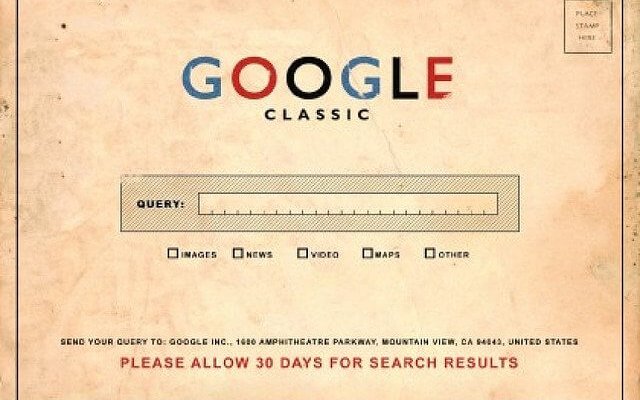If you use Google Adwords for your business you probably know two things: You definitely pay for the service every month. And you definitely don’t know if it’s working.
The effect is very similar to the direct mail campaign. Design a nice flyer, letter, coupon etc. Send said ad and wad of cash to direct mail company. Wait by phone for customers. Without a crush of new business it’s hard to assess if the campaign worked. Yes, you got a few new customers, but why? Did they come from other sources? Hard to tell.
What would be more effective to know is why didn’t the ad bring you a crush of new business. Was the ad design bad? Was the mailing list not your target market? If you had those answers you could pivot your strategy for next time. And that’s where Google’s power comes into effect with a side benefit to using its Adwords service – keyword data.
Today we’ll cover three points on Google Ads. One, do they work? Two, if they don’t work, then why bother? And three, how to influence Google search.
People are always clicking on Google ads. Right?
Contre mon fre. A report presented by the National Bureau of Economic Research shared the results from a series of large scale field experiments done at eBay to measure the causal effectiveness of paid search ads. It was also reported on by The Atlantic. The data wasn’t pretty.
Because search clicks and purchase behavior are correlated, the report shows that returns from paid search are a fraction of conventional non-experimental estimates. As an extreme case, they show that brand-keyword ads have no measurable short-term benefits. For non-brand keywords they find that new and infrequent users are positively influenced by ads, but that more frequent users whose purchasing behavior is not influenced by ads account for most of the advertising expenses, resulting in average returns that are negative.
Take away: Using your company name Widgets R Us isn’t going to generate short term sales. Savvy, frequent online shoppers are ignoring your ads anyway.
People are becoming numb to advertising of all kinds – even the ones that pop up when you’re searching for the exact information they have for you. We question more and do more research before making a purchase. Shoppers are on a buyer’s journey way before they make the decision to click and buy. (Unless, like me, you just had to buy that Votivo Blue Pine candle that you fell in love after smelling for hours at your mother-in-law’s home over the holidays. Click. Buy.)
According to MineWhat.com, eighty-one percent of shoppers conduct online research before they make a purchase. Sixty percent begin by using a search engine to find the products they want, and 61 percent will read product reviews before making any purchase. On average, a consumer will visit three stores before making their purchase.
Google ads have become the direct mail of the Super Highway. Intrusive and clogging our lives with junk as we do our research and try to get to know a business.
If Google Ads don’t work for sales, why bother?
Here’s an important note. Buyers might not click on your ad to purchase your product. But people are clicking on reviews and organic (non-paid) content like blogs.
There is still HUGE value in advertising with Google even though those ads may not get the powerhouse clicks you seek. Google gives its advertisers access to more analytics like the keywords people were searching for when they found your website. With that info, you can give people more of the content they crave. That’s the good stuff. If you knew that there were buyers out there looking for widgets like yours that charge phones AND brew coffee, wouldn’t you write a blog about it to capture those online searches? Of course you would, because you are smart.
And if you do advertise with Google as many of our clients do, be smart with your ads so you’re not wasting your money on keywords that are highly competitive. We frequently find with new clients that use Google Adwords that they don’t know the exact keywords around which they are paying for advertising. And they definitely don’t know if those keywords are reaching their target markets or if there could be more specific, less competitive words to go after.
Have a professional marketing team with Adwords experience analyze your last month’s report to tell you if you are actually reaching the customers in your target market. Most agencies will do this for a small fee and give you a report to keep.
Ads or no ads, you can still sway Google
Ads should never be your only marketing. They should be informed by keyword data and nestled strategically inside a larger marketing campaign that includes proactive content marketing. You have an opportunity to insert your company into the content people are using in their research.
Blogging is your key to search. The more you blog about the topics and things people look for, the more users will be directed to your site. Google rewards those who write. Keywords should also be incorporated into your website content including image alt text and on-page copy. Our blog on SEO can help you get a handle on this. You’ll want to use short keywords like “widget” and “phone charger” and long-tail phrases like, “How do I get my phone to charge by drinking coffee?”
Those long-tail phrases are perfect for blogs. In fact, go ahead and make them your titles. The best blogs for capturing search are evergreen pieces that answer questions and solve problems of the people to whom you’re selling. Use your brand platform to build trust with your audience and inform them of solutions to their problems. You know from your own internet behavior that helpful service like this is way more clickable than one of those top three ad search results we’ve trained ourselves not to click on.




Leave a Reply